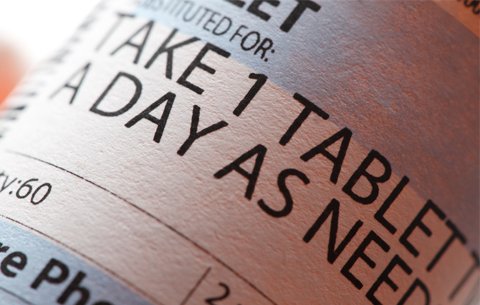1401 Avocado Ave, Suite 104 Newport Beach, CA 92660 | Current Patients: (949) 640-1320 | Fax: (949) 640-1324
Monday - Friday: 9:00am-6:00pm | Saturday: 9:00am-2:00pm | Closed Sunday & Major Holidays
The Difference Between A Drugstore And A Pharmacy
Pharmacy and Drugstore are among the common terms often used interchangeably but they significantly differ in various aspects. While both are necessary for getting prescription drugs and other health-related items, they have different purposes. Knowing these differences allows you to choose the best place for your requirements.
A drugstore comprises pharmaceutical services along with a larger variety of retail goods, whereas a pharmacy in Newport Beach concentrates on the expert management of prescriptions and patient care. Making decisions about where to go based on your preferences and health needs can be made easier if you know the difference between these two.

Key Differences Between A Pharmacy And Drugstore
Based on their main functions, services provided, and goods offered, a pharmacy and a drugstore in Newport Beach can be distinguished from one another in the following ways –
| Key Differences | Pharmacy | Drugstore |
|---|---|---|
| Primary Function | It focuses on complete healthcare services including medical advice, and medication management. Some pharmacies also provide medication compounding facilities. | It focuses on various products like OTC medicines, personal care goods, and other retail and convenience services. |
| Services | Pharmacies provide services like health screening, consultation services, prescription filling, vaccination, disease management, and therapies. | Drugstores offer services like basic healthcare services and retail products. |
| Expertise and Staff | Pharmacies have specialized technicians and trained pharmacists for personalized healthcare services. | Drugstores have pharmacists and retail associates to ensure excellent customer service. |
| Regulations | A pharmacy is regulated by healthcare authorities. It should strictly adhere to protocols and professional license requirements. | A drugstore is subjected to typical retail and business regulations. However, its pharmacy section can have additional oversight. |
| Products | It offers prescription drugs, compounding medications, OTC medicines, and all other healthcare products. | It offers various other products including medicines (OTC and prescriptions). |
Here is a detailed explanation of the key differences between pharmacies and drugstores –
1. Main Purpose
Pharmacy
- Providing pharmaceutical-related healthcare services is a pharmacy’s main function. Prescription medication preparation, administration, and dispensing fall under this category.
- Trained medical experts and pharmacists offer essential guidance on how to use OTC medications, possible side effects, and drug interactions.
- Pharmacies play a critical role in the management of chronic pain and illnesses, providing treatment plan consultations, and monitoring patient adherence to prescription drug schedules.
Drugstore
A drugstore is a type of retail store with a large selection of goods. Although it has a pharmaceutical area, its main purpose is shopping.
Customers may buy ordinary products like snacks, toiletries, and household necessities in addition to prescriptions at pharmacies, offering a simple shopping experience.
2. Services
Pharmacy
Prescription drug administration and filling are the areas of expertise for pharmacists. In addition to ensuring that doses are proper and verifying prescriptions, pharmacists often advise on how to take pharmaceuticals safely.
Additional health services including blood pressure monitoring, diabetes care, important vaccines for children and adults, and health screenings are provided by many pharmacies.
To assist patients in medication adherence, managing side effects, comprehending their prescriptions, and making educated decisions about their health, pharmacists provide one-on-one consultations.
Drugstore
A wide range of OTC (over-the-counter) medications are available at drugstores to treat common illnesses including colds, allergies, and mild aches.
Drugstores provide a variety of goods in addition to health supplies, including food, cosmetics, personal care items, and even seasonal goods.
A drugstore’s pharmacy department provides the same services as one that operates alone, but the shop meets more diverse retail demands.
3. Expertise And Staff
Pharmacy
The foundation of a pharmacy is its pharmacist. They generally possess a Doctor of Pharmacy (Pharm.D.) degree and have had substantial study and training in pharmaceuticals. Pharmacists’ role in patient care is crucial.
Pharmacy technicians help pharmacists with inventory management, drug preparation and dispensing, and client service.
Drugstore
The retail operations of drugstores are managed by a diverse range of employees, such as stock clerks, sales associates, and cashiers.
Licensed pharmacists and pharmacy technicians work in the drugstore’s pharmacy department, offering specialized medical services akin to those offered by standalone pharmacies.
4. Regulations And Administration
Pharmacy
Healthcare authorities impose strict controls on pharmacies to guarantee the safe handling and distribution of pharmaceuticals. This entails keeping records, confirming prescriptions, and abiding by rules about banned medications.
To keep their professional licenses, pharmacists must adhere to ethical norms and pursue continuing education.
Drugstore
Standard business rules, such as those pertaining to retail sales, inventory control, and customer service, apply to a drugstore’s retail section.
The pharmacy division of a drugstore guarantees the safe distribution of pharmaceuticals and appropriate pharmaceutical care by adhering to the same regulatory standards as independent pharmacies.
5. Products
Pharmacy
The main products that pharmacies provide are OTC medicines, compounding medications, and prescription pharmaceuticals. They could also have health-related items and medical supplies with them.
Pharmacies usually include products for wound treatment, inhalers, and blood glucose monitors.
Drugstore
Drugstores sell a wide range of commodities, such as seasonal goods, cleaning supplies, food and drink, personal care items, and health and beauty products.
Prescription pharmaceuticals and healthcare supplies are available in the drugstore’s pharmacy department, but general retail goods are the store’s focus.
These are the main variations that make a pharmacy and a drugstore different from each other, though the terms are often used interchangeably.
Healthcare Management Made Easy With Expert Pharmacy
Experience seamless healthcare and disease management with our pharmacy in Newport Beach. Our pharmacist at Newport Center Compounding Pharmacy ensures you receive the best possible care and attention. We are here to help you with everything, from managing your prescriptions to offering health consultations.
Contact us at (949) 640-1320 to Order Your Medication Now or schedule a consultation with our expert.
Recent Post
- Exploring The Benefits Of Dental Pharmacy Services
- The Difference Between A Drugstore And A Pharmacy
- Navigating Hormone Replacement Therapy: A Guide for Women
- Understanding Drug Interactions and How to Avoid Them
- The Importance of Getting Vaccinated: Understanding Vaccines and Their Benefits
- Understanding the Differences Between Brand-Name and Generic Medications

